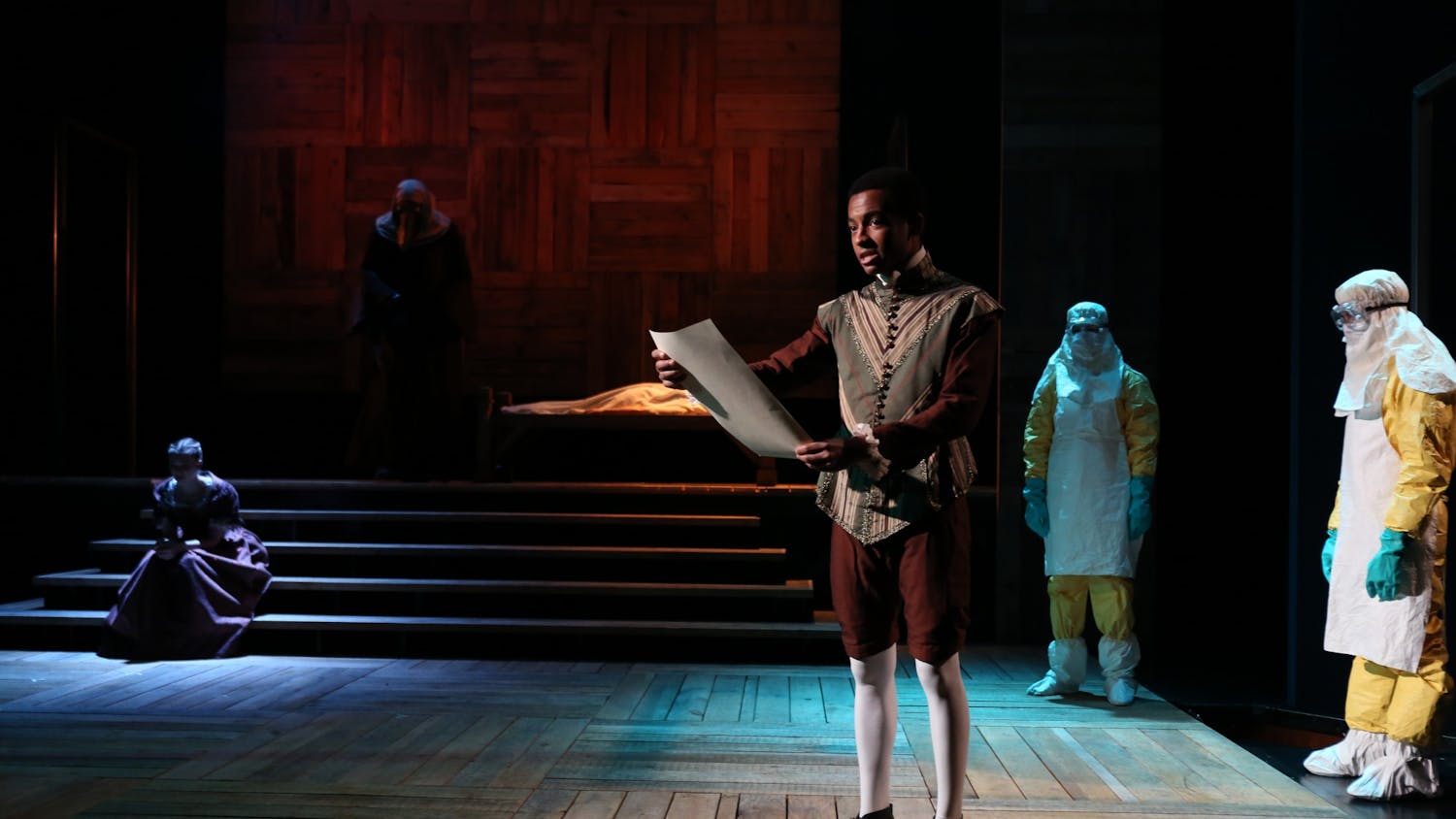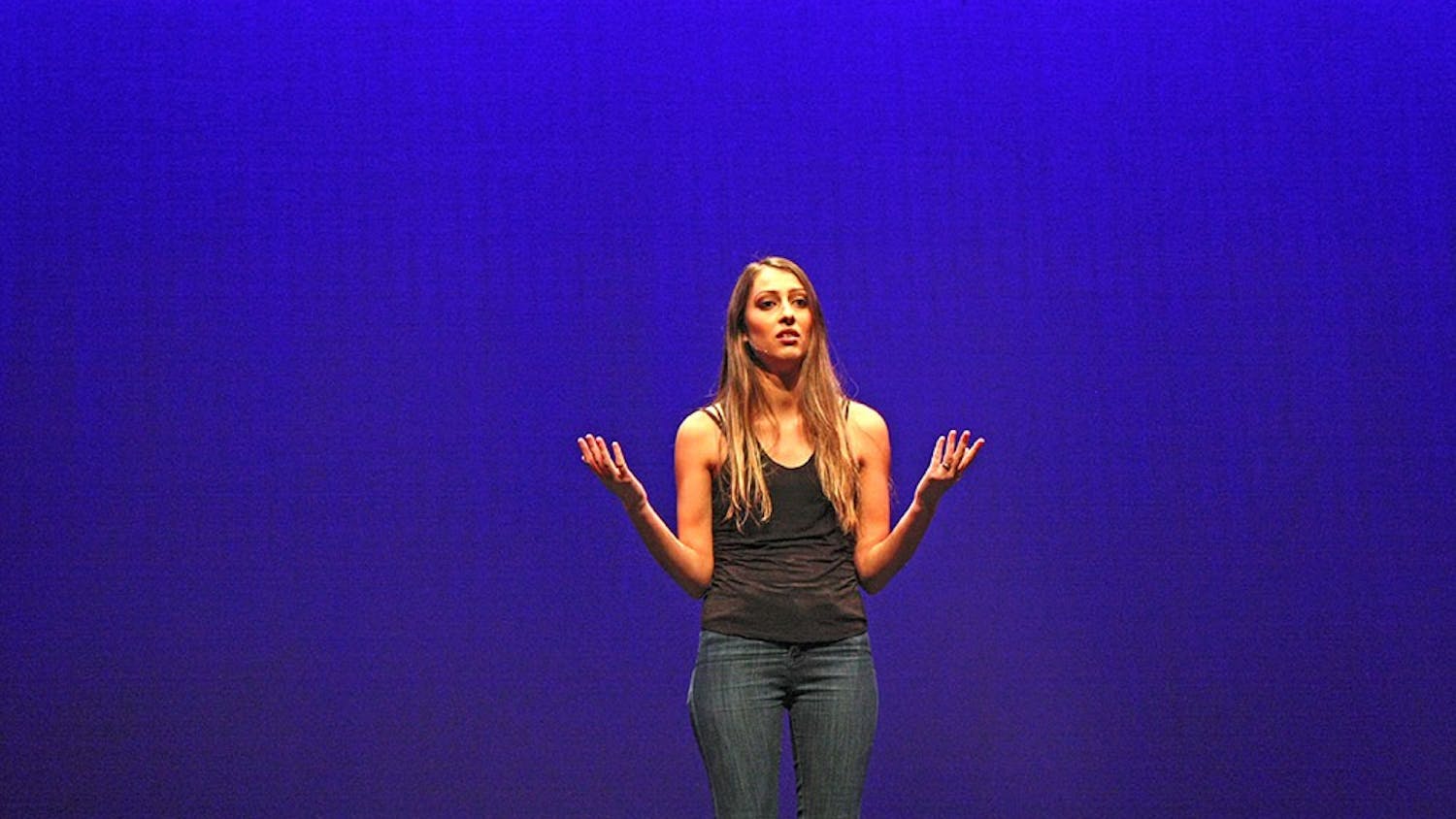“The Sweet Science of Bruising” had its American premiere in Moore Theater last Friday. Written by Joy Wilkinson, the play is set in 1869 London. It tells the story of four women from a variety of backgrounds who find their way into the boxing ring to literally fight for their right to freedom and gender equality.
“I would say it’s an explosive play about female boxers that manages to be both beautiful and sad and empowering and just amazing in all the best ways,” said Nat Stornelli ’21, props master for the show. Stornelli found “The Sweet Science of Bruising” to be incredibly powerful, from the cast members to the set.
Director Peter Hackett said that the historic setting of Victorian England allows for greater understanding of the severity of the issues.
“Even though it’s set in the past, and has a historical framework, it’s really a very contemporary play in that it deals with a lot of very important contemporary political and social issues,” Hackett said. “All of the issues — you can’t just point to one — that the play raises are contemporary issues that [students] at Dartmouth are dealing with now.”
The play displays the long history of the feminist struggle for equality on many levels, from the casting choices, to the actual characters, to the theme of boxing — a typically male dominated sport. It also highlights the idea that this struggle is nowhere close to being over.
“I think it’s really cool that this is a play with four female leads. I don’t think that happens very much, just in general,” Stornelli said. “Getting to see these four female characters, played by four very strong women in real life, kind of showcases the different ways that they are feminine and the different kinds of strength. I think that’s really, really powerful because I think it can sometimes be easy to forget that feminism doesn’t just mean wearing pants and going out into the workplace — it means freedom to do whatever brings you joy.”
Each lead character finds their way to the boxing ring for many different reasons. Anna, a mother and victim of domestic abuse, lives solely for her children. Violet, a nurse, dreams of being a doctor. Matty, a prostitute, does whatever she can to support herself. Polly, a fighter, has no league to compete within. Though they all differ, each of these women combat the male-dominated society they are trapped in through boxing.
The four women serve as a metaphor for the struggles that women face everyday, but have been able to confront through their unity. This message is encapsulated in the final scene of the first act, in which all four women are practicing their punches, hooks and dodges simultaneously — but each in their own light on stage.
“Four women on stage doing something successfully, that is normally thought of as the purview of men — the whole play is contained in that image,” Hackett said.
With characters and challenges based on real people from both the past and present, the play demonstrates that each woman and each person is instantly more than what they might appear to be at first. Though feminism is a strong theme, the underlying focus is on empathy and the recognition of humanity. Each character being so different allows each audience member to connect with the play on a deeper level.
Veronica Cavalcanti ’23 plays Anna Lamb, one of the female leads in the play. At first, she struggled connecting to her character since she has not faced domestic abuse or motherhood. However, she realized that just as Anna put everything she had into her children, everyone can relate to having something or someone to live for.
“Through these small little experiences, I realized people are not that different in the end,” Cavalcanti said. “The big, outside circumstances are obviously hugely different, but not the way that we feel things.”
According to Cavalcanti, Wilkinson wrote the play with the themes of empathy and humanity in mind. While a joy to watch due to the incredible set and cast, the power of the play thus lies in its subtle ability to transmit its messages.
“It really does make you think about all the aspects that go into making a strong woman,” Stornelli said. “One of the cast members told me that when they were talking to the playwright, Joy Wilkinson, she said that each woman represented a different part of a whole person: Anna is the soul, Polly is the heart, Violet is the brain and Matty is the body. Thinking of it like that and thinking about all of these parts that make up strength and make up femininity is so cool.”
This focus on feminism, humanity and empathy connected the cast and crew, as they recognized the importance of the messages they were portraying. While this helped to make the production as coherent and successful as it is, it also made the audience incredibly attentive and reactive.
“The one thing I have noticed is that during the performances, the audience is really, really with it. They are hanging on to every word and are really following the story very carefully, and that’s very gratifying,” Hackett said.
Cavalcanti said that she hopes this audience engagement will help spread the power of the show and further its important messages of equality and empathy. Though it only takes one person to start a change, there is power in numbers.
“I hope they leave feeling super inspired, like they could pretty much do anything. If these four women from all these different backgrounds could do all this ... that’s pretty incredible,” Cavalcanti said.
“The Sweet Science of Bruising” has its final productions this weekend in Moore Theater. Tickets are available on the Hopkins Center’s website.



